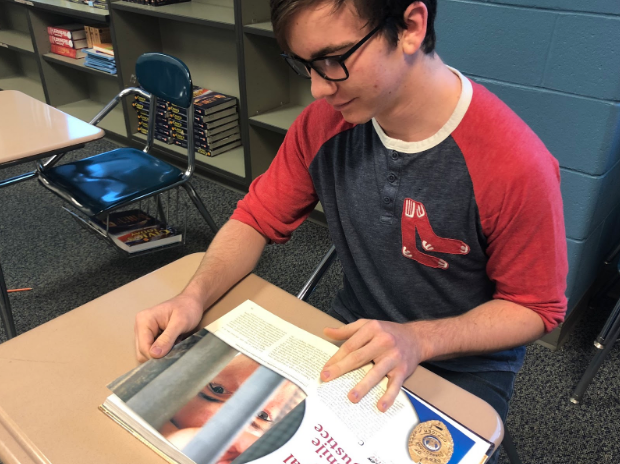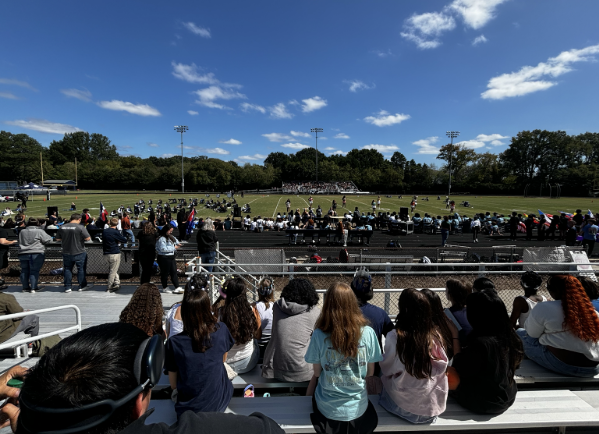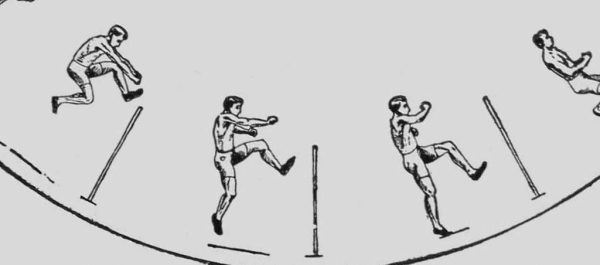Do textbooks still matter today?
Taking detailed notes, sophomore Jake Seagraves reads off of a lengthy textbook. In our modern world, with all our new technology, the value of textbooks is being questioned.
May 22, 2018
Wake County has ruled that they will not be purchasing anymore textbooks in the coming years. As reported by the News & Observer, instead of continuing to buy textbooks, free online resources EL Education and Mathematics Vision will be implemented in classrooms instead. The books that are currently sitting on the shelves of your classes at this moment are now all we have left. In the modern world, this announcement begs the question are textbooks still useful? I think they are.
There are many good reasons for textbooks. Textbooks are especially useful in courses where specific times, places, and definitions are important. They are also incredibly useful for beginning teachers, since units are laid out easily in chapters with pre-assigned work to accompany them. Many textbooks have lots of key definitions and questions outlined at the beginning of each chapter, which helps the student with what they need to know. Key concepts are usually bolded and highlighted, and anything that may be unknown is usually defined for you in the footnotes. They serve as a blunt and easy guide for what exactly you need to know. Many also refer to other activities or lessons to check out in order to attempt to interact with the reader.
However, many say that textbooks fail to spark interest in the classroom. Instead of doing a hands-on activity in order to learn the material, a textbook floods students with information, which can seem daunting to those beginning the subject. Textbooks may also quickly become outdated, and only provide students with one perspective on an issue. Nowadays, textbooks seem so universally unfavored among students that teachers may threaten to assign bookwork as a punishment. You will oftentimes hear your friends complain about how boring their class is if it is a textbook-driven class— and interest is key in getting students to learn. However, this belief is only true if you see textbooks as just a book you read. You can tackle the load of information easily by staying interactive with the textbook. They always offer helpful questions and other related activities in the margins that you can complete to further your understanding. You may also access online resources offered to you to ensure you keep yourself up-to-date.
I decided to poll the student body on their opinion of textbooks to see what they thought. Out of 119 responses, 52% of voters said that they found textbooks boring and obsolete in today’s world. 33% of responders said that they find textbooks helpful. “I believe textbooks are still useful in today’s world, as they hold the specific information you need in each class, since they keep all the information organized instead of being scattered across lots of sources,” sophomore Lili Birch said.
Despite the student body’s majority rule against them, I believe textbooks still have great value in the classroom. Textbooks can be incredibly useful for you if you want them to be. Offering the books as a resource, rather than the rule, is a great start in incorporating them into modern classrooms. Offering other options alongside with the textbooks, like notes given by the instructor or using trusted websites, ensures that students have multiple opportunities to learn in the way they prefer. Even though there will not be any more textbook purchases in the coming years for our school, they can still hold a great value in our digital world. Whether or not students prefer the books, they are still going to be there, so we might as well make use out of them.












